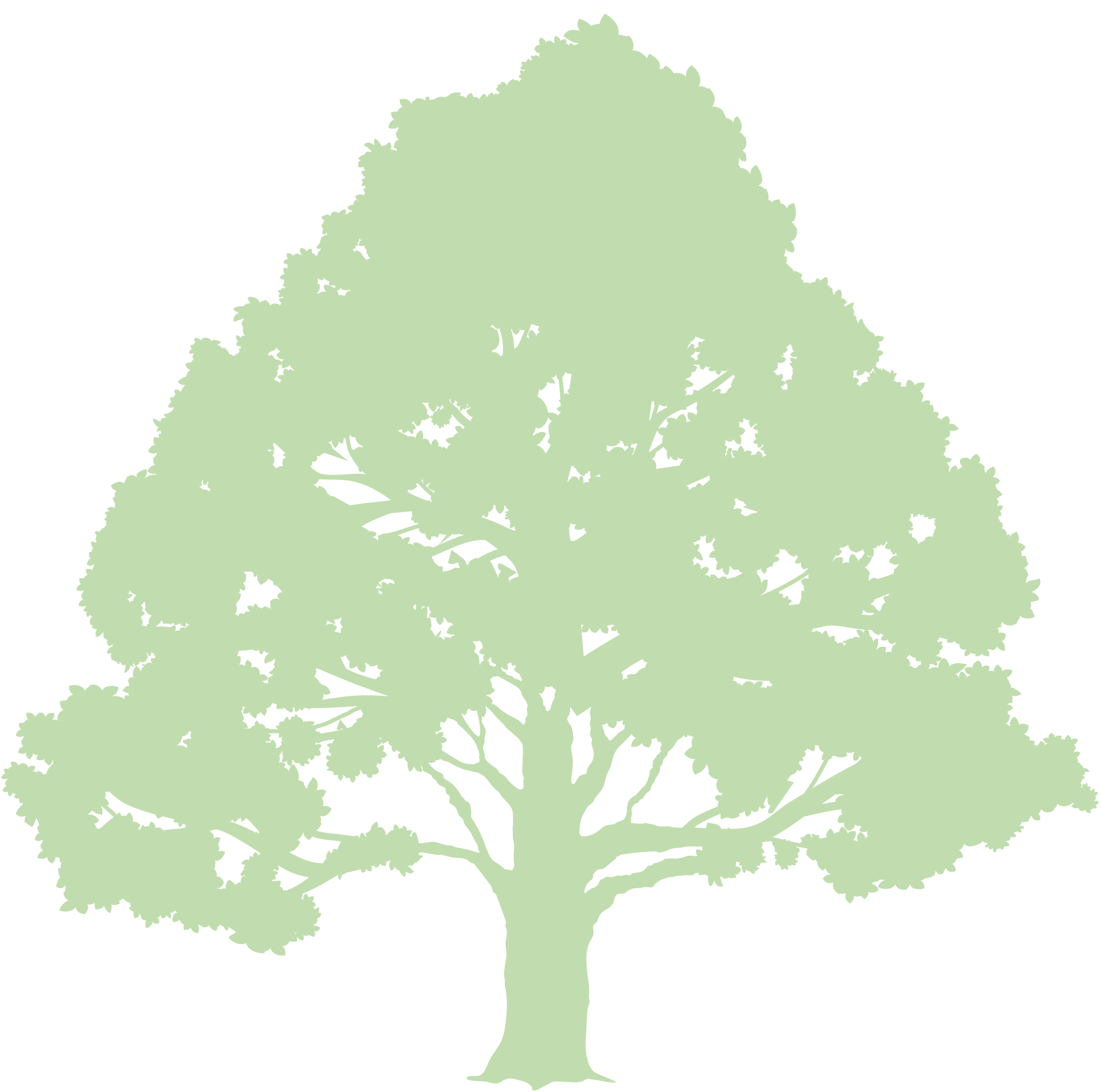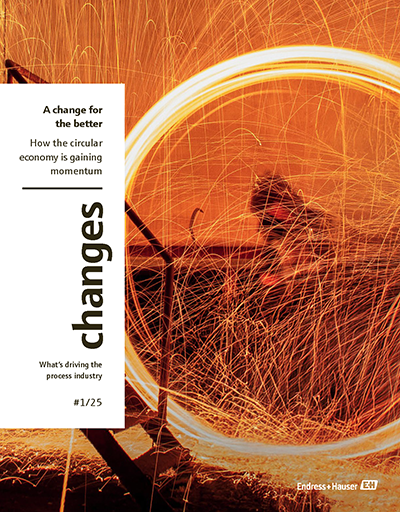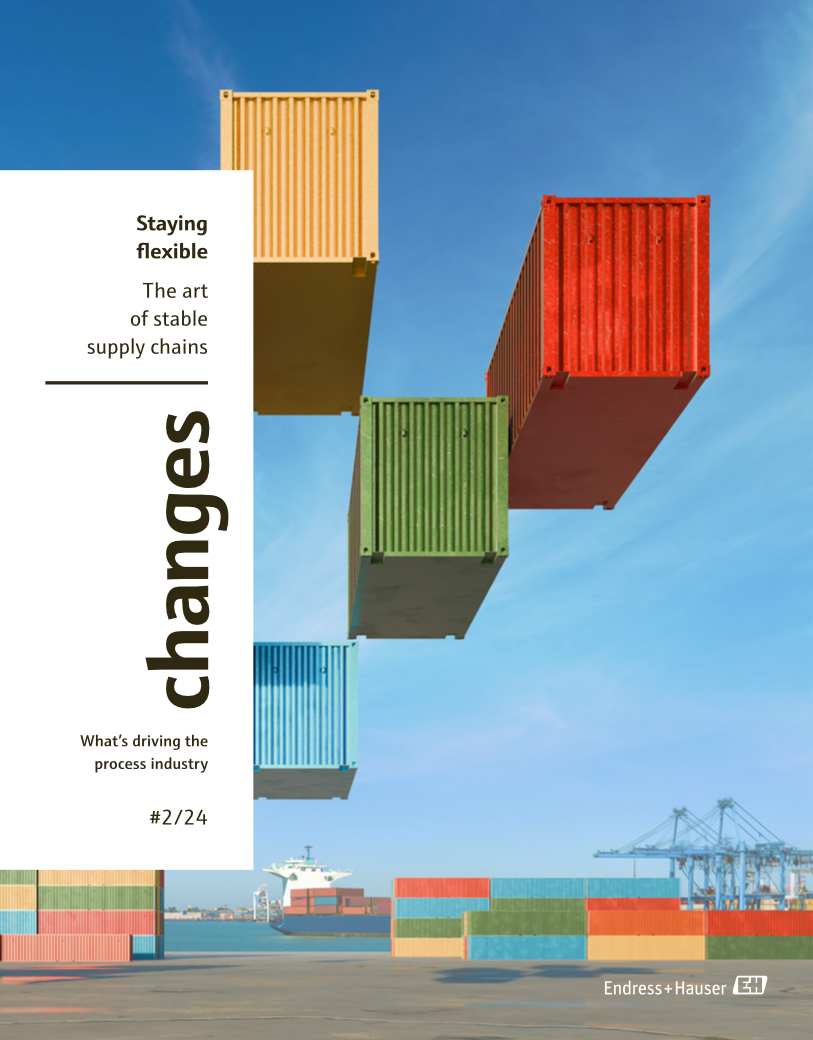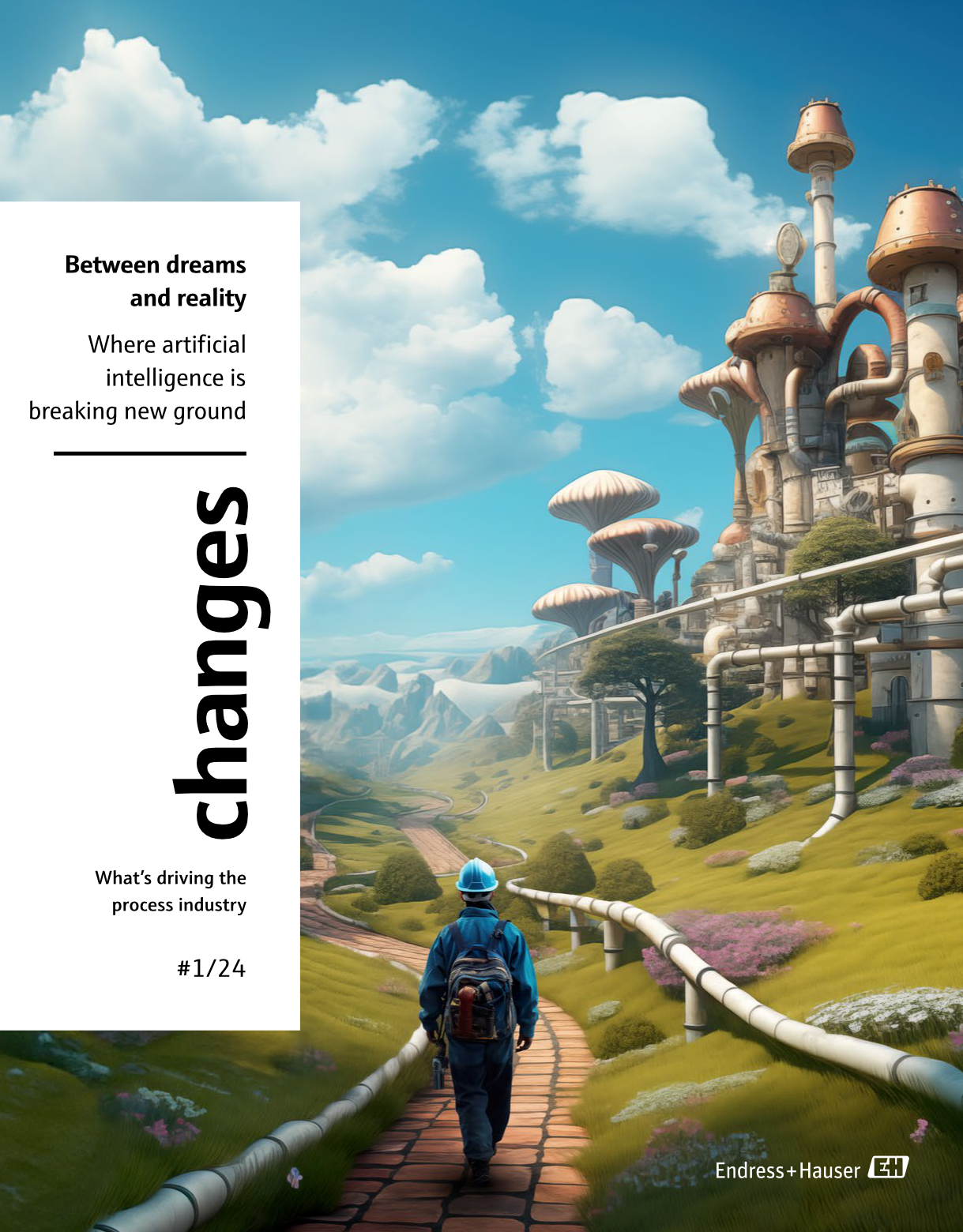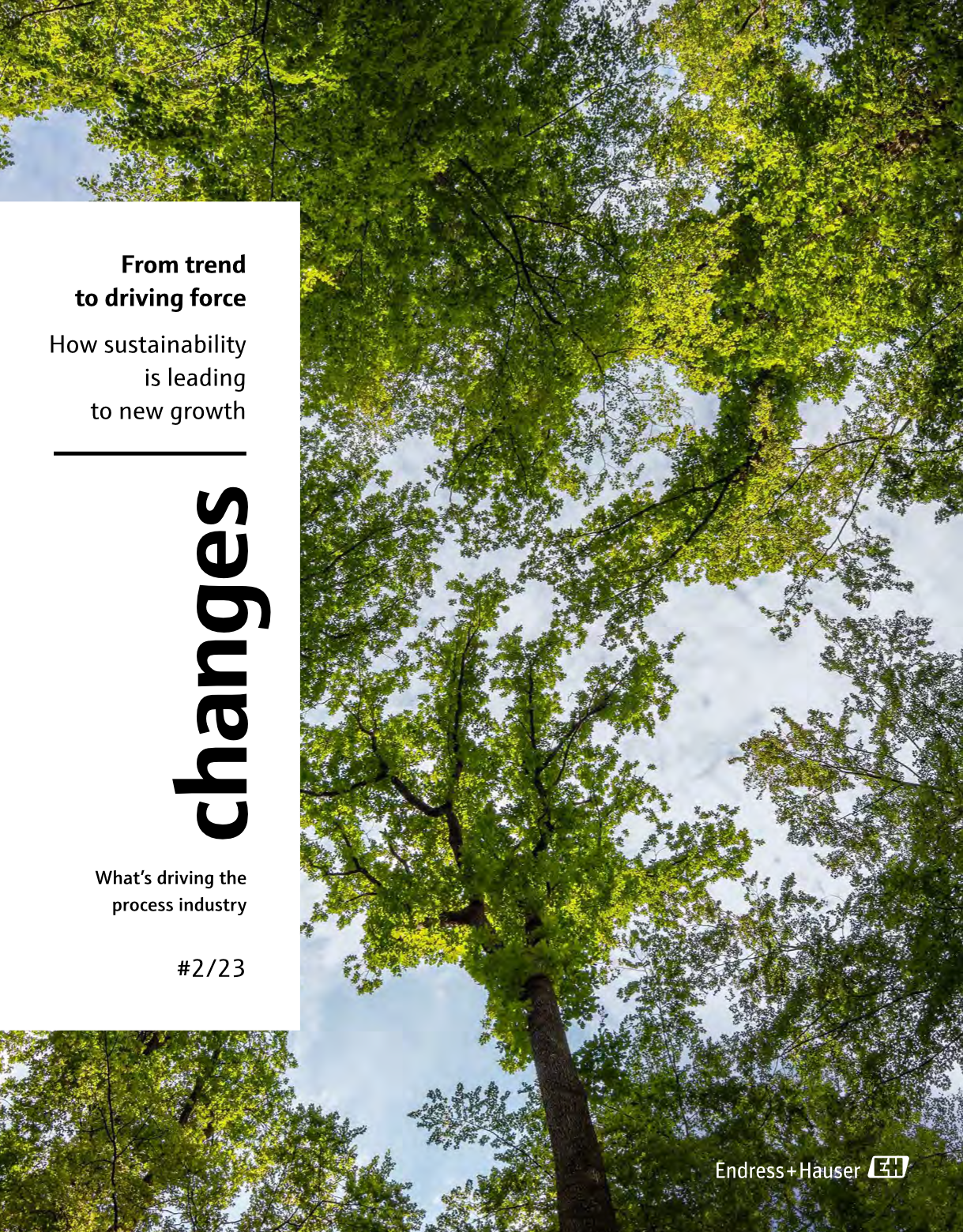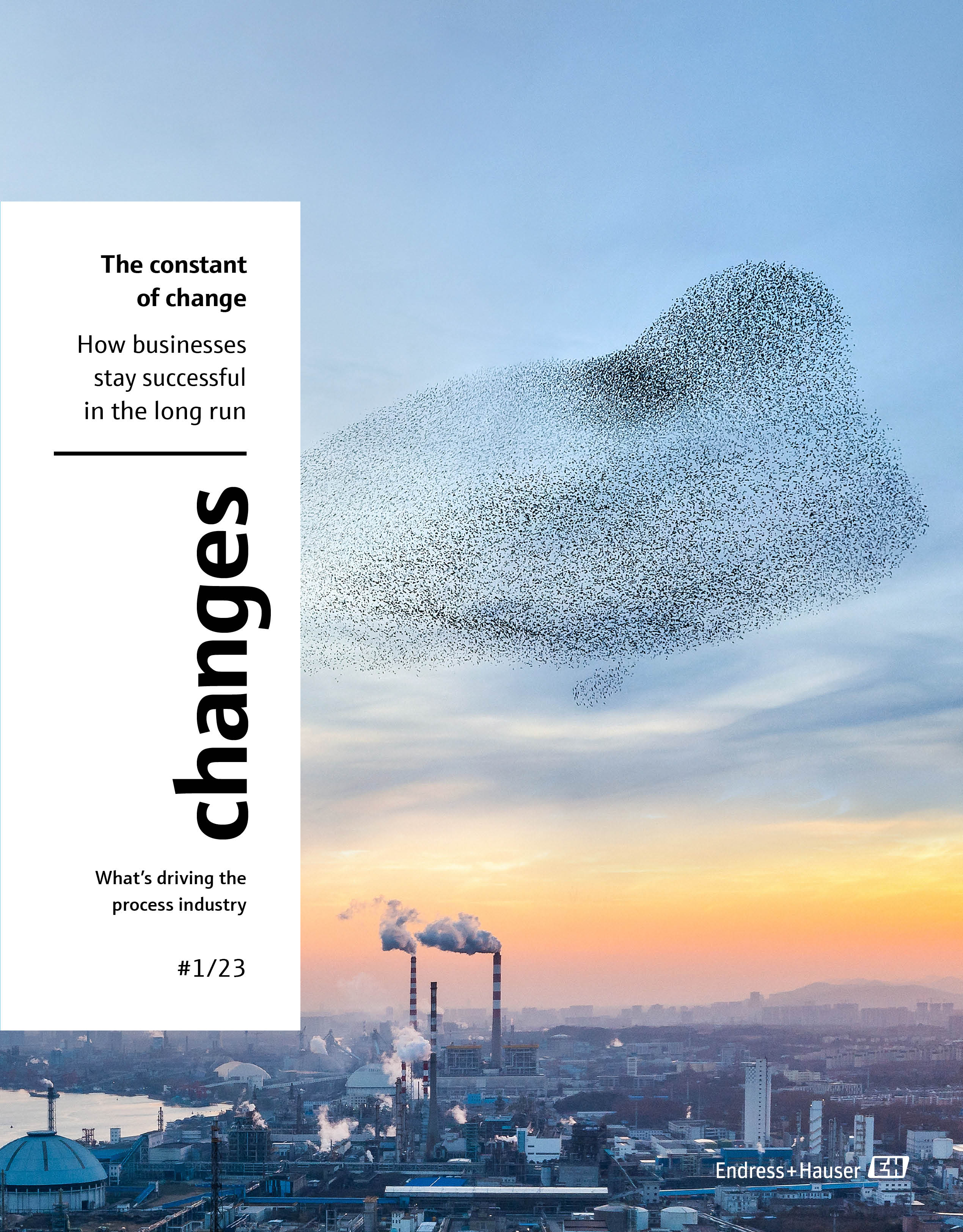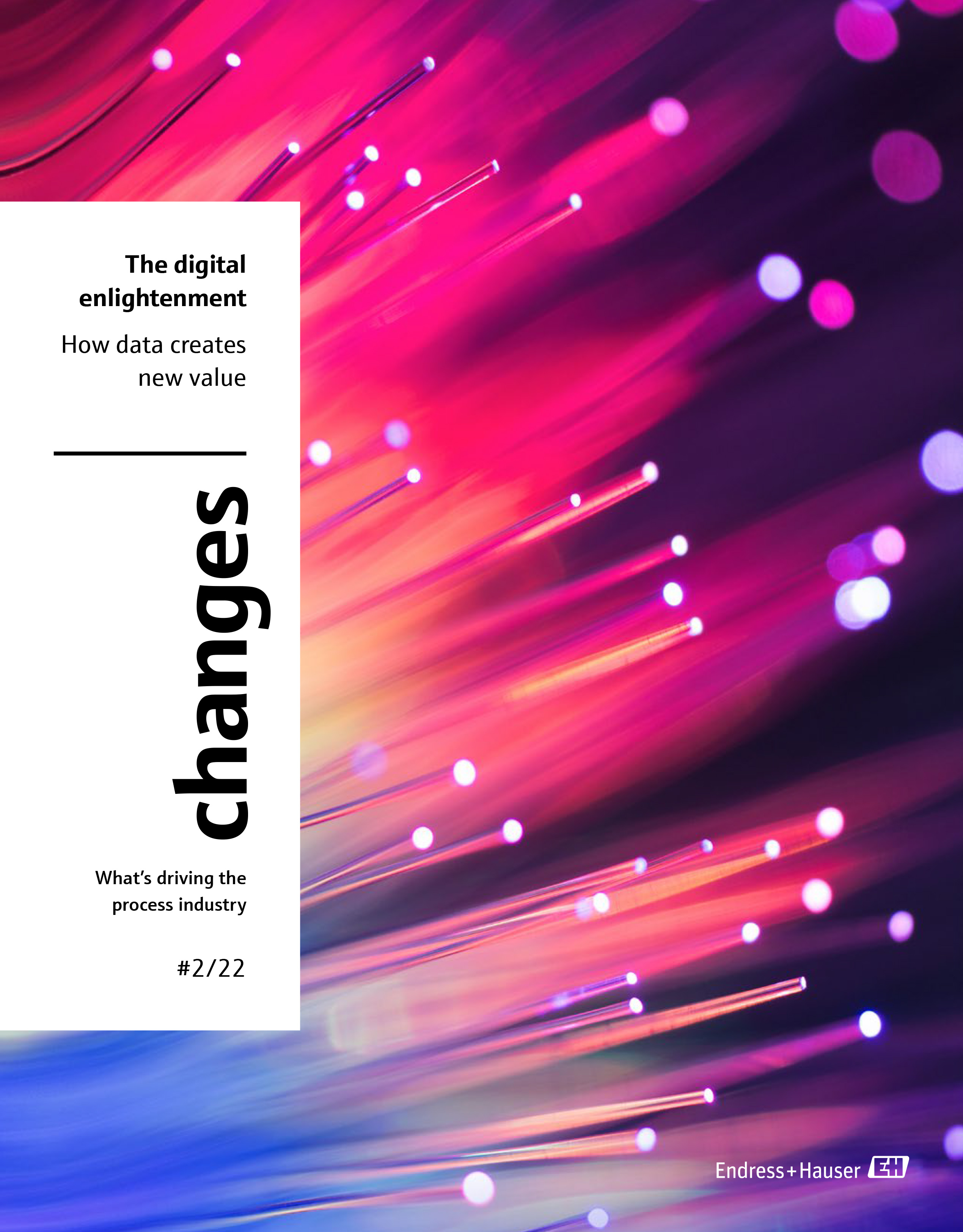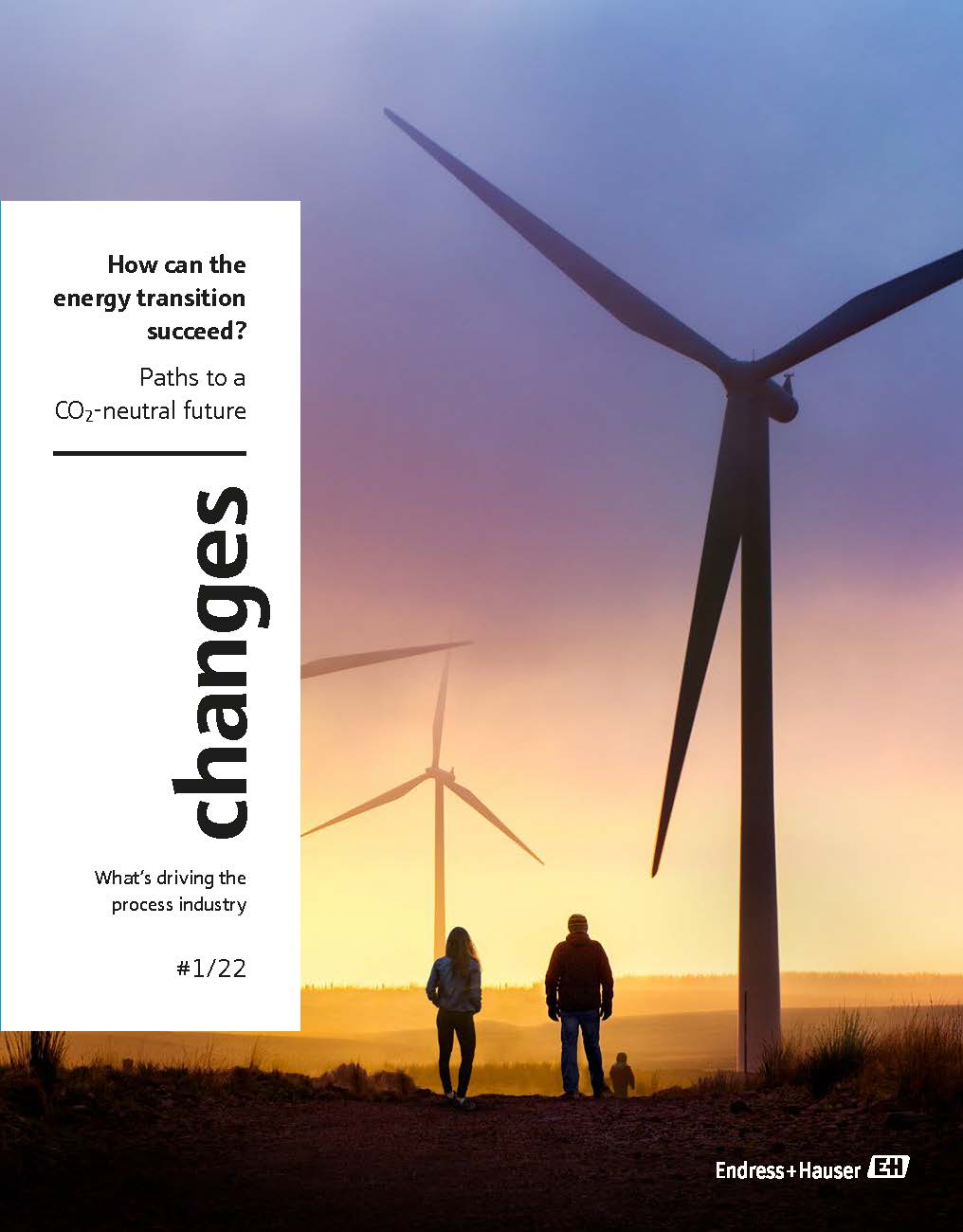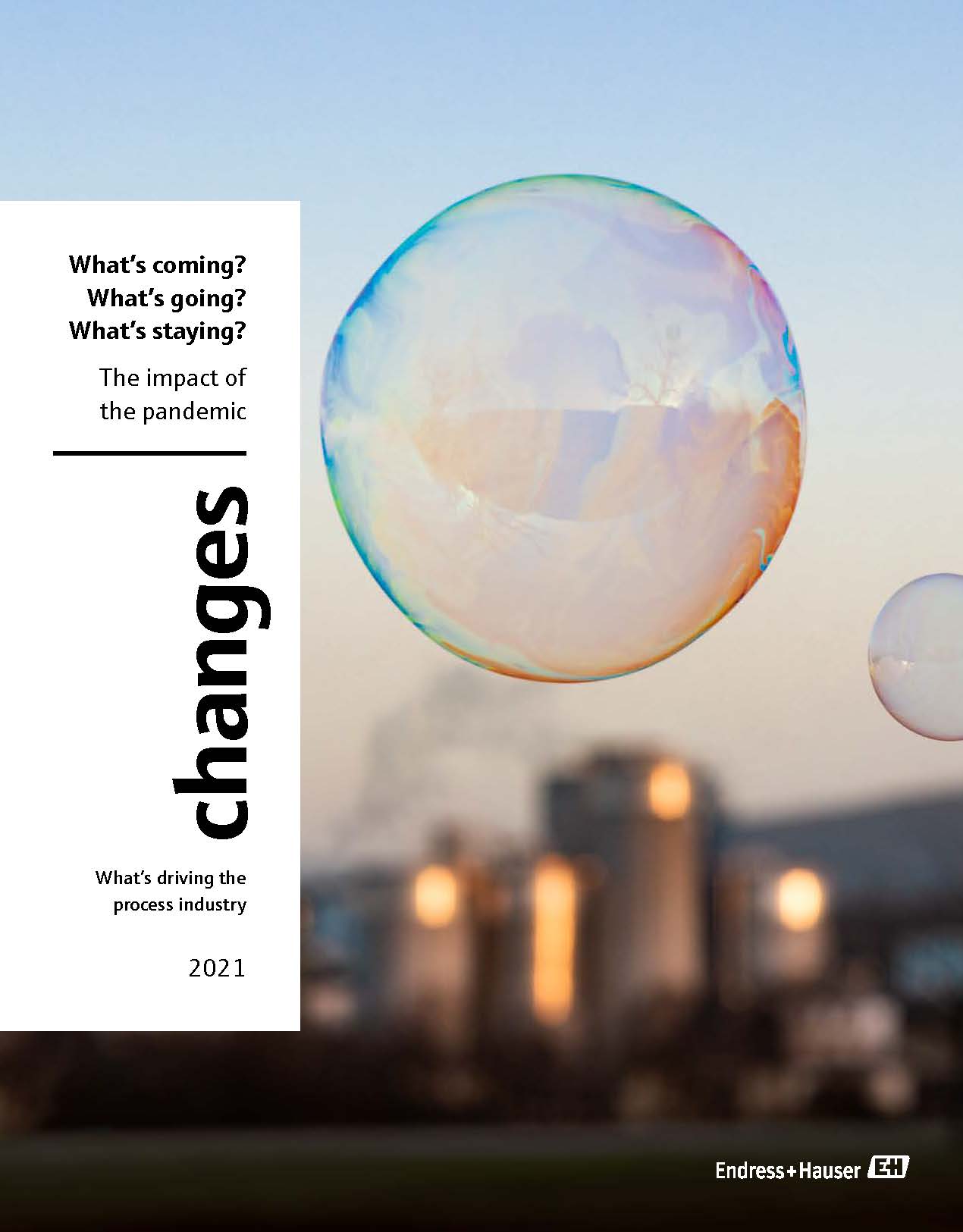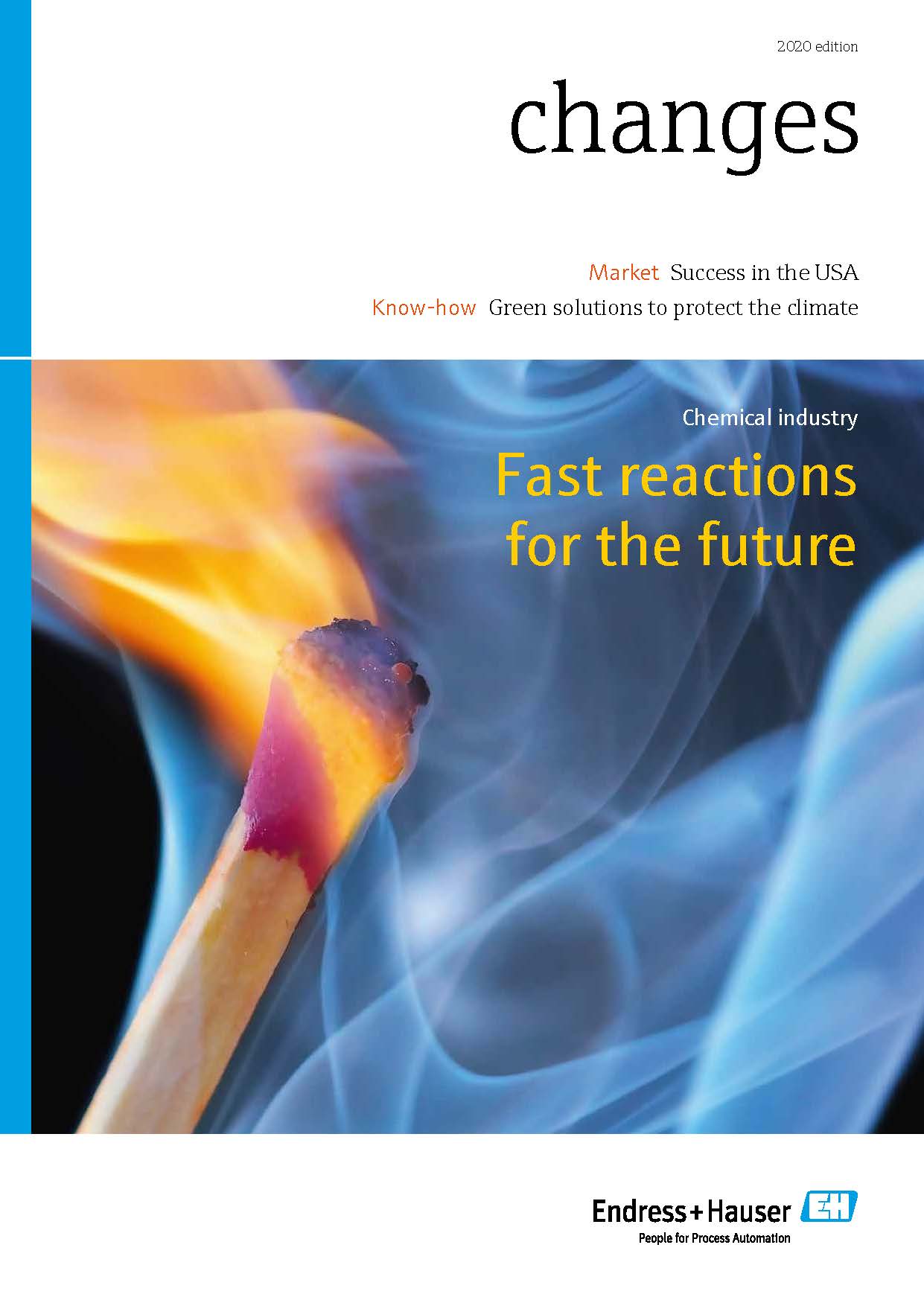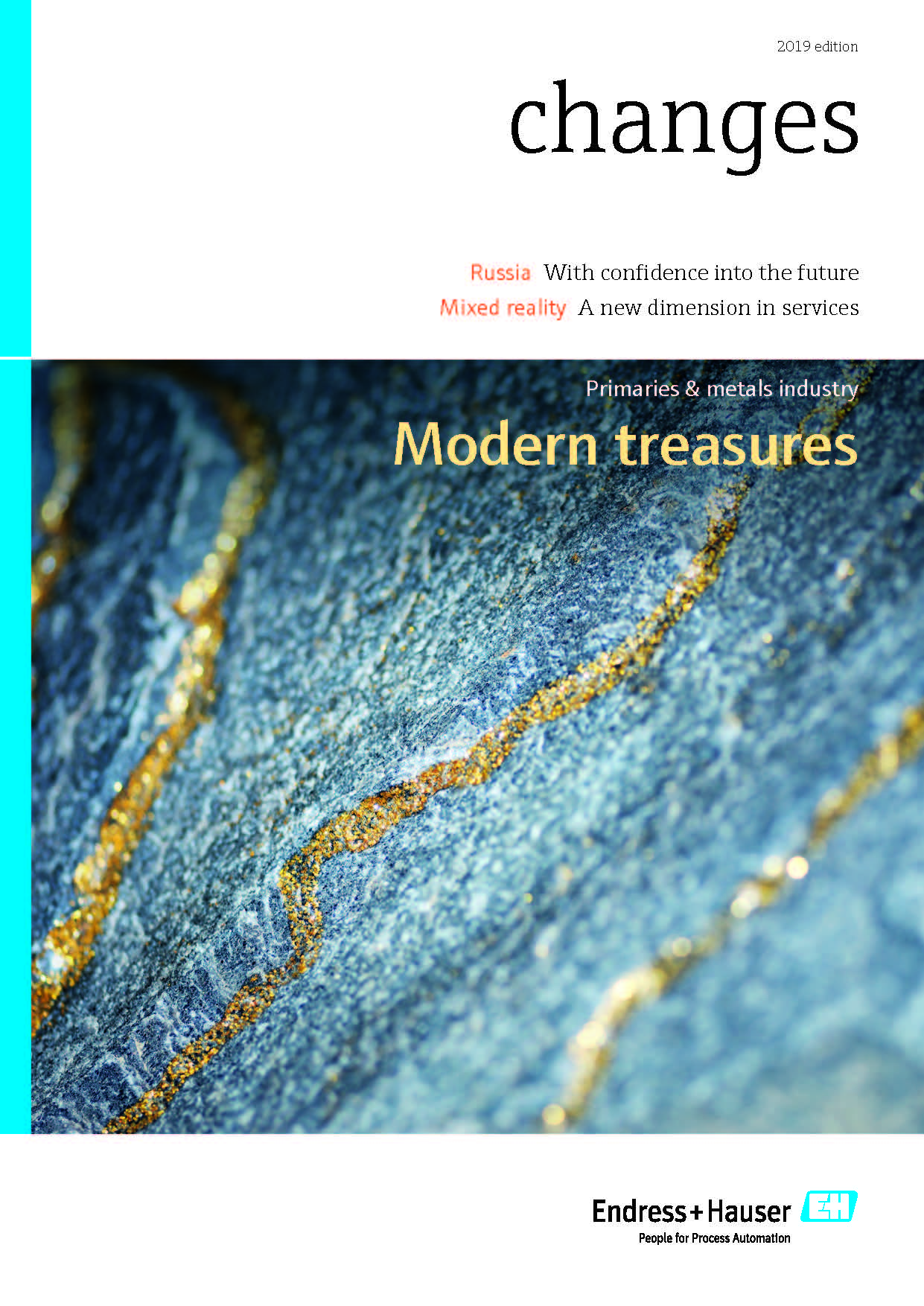What matters now and in the future?
Klaus Endress is handing over his responsibilities as president of the Supervisory Board at the end of 2023. In our interview, he looks back at 45 years with the company – and talks about his career, the role of the family and what he has learned from nature.
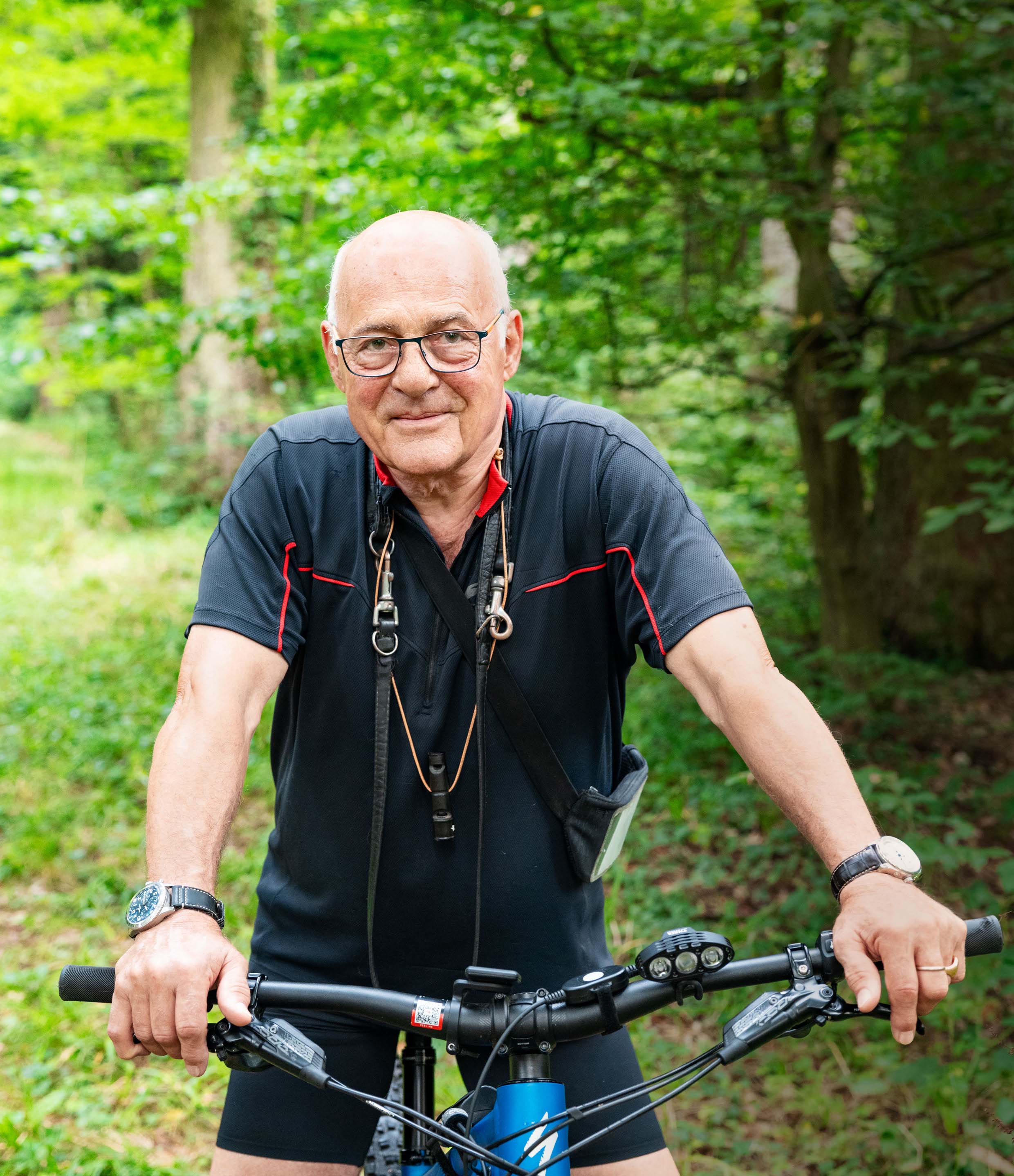

Mr Endress, your path into the company was mapped out early…
There never was a master plan for my career with the company – only chances, opportunities.
You nevertheless decided in your teens to go down this route.
I signed an apprentice contract at the age of 16, which I proudly showed my father in expectation of praise. But instead, he asked me if I wouldn’t rather be his successor. This came as an utter surprise. Although I was happy that he placed his trust in me, it was a big commitment. I said yes, but I didn’t know what I was getting myself into!
So what exactly did you get yourself into?
First of all, it meant that I had to go to college and study something technical. But before that I had to earn my university entrance diploma. After two semesters of electrical engineering at ETH Zurich, I switched to the Technical University of Berlin where I studied industrial engineering. For 14 semesters, I took on board all the knowledge that I thought might help with my future responsibilities. I graduated with a top grade in computer science. My first two years of on-the-job experience were at a company in the US. After that I joined our American subsidiary. Returning to Germany, in 1980 I took over production planning in Maulburg and shaped it into what we now call industrial engineering, integrating procurement and scheduling. Then in 1983 I moved to Frankfurt, where I was responsible for sales of measurement recording technology. After just under a year, I returned to Maulburg and took over the controlling department, which also incorporated IT. In 1987 my father entrusted me with the site as a whole; this came with the task of splitting off the German sales organization, which at that time was still integrated with the Maulburg location. From 1992 I took corporate-level responsibility for our production centers and the US business. Then I became CEO of the Group at the beginning of 1995. It could be said that I trained outside Endress+Hauser for 10 years, followed by 15 years inside preparing for my responsibility as CEO.
Was being the son of the founder an advantage?
With every position I assumed within the company, the gist was always, ‘Let’s wait and see…’. External recruits were introduced with all their past accomplishments, whereas I had to keep proving my capability in each new role. I certainly didn’t have it any easier than others!
How did you manage to step out of your father’s shadow?
It was my intuition back then to study production engineering and computer science: fields that were of less interest to my father, yet which matter just as much to a successful company as its market, customers and products. In this way I could establish myself without getting in my father’s way too much. We had very different strengths, incidentally. He was a pioneer, able to create something out of nothing. That’s not my forte! I need something that already exists, which I can then improve. But I never had the feeling that I was standing in my father’s shadow. I always had enough sun. And with increasing success, I received increasing recognition.
What gave you the strength and courage to pursue your goal all the way?
I wanted to continue my father’s life’s work and grow the company further. Healthy growth and secure jobs have been my constant drivers. I never had any doubts and I never despaired. And I never gave up. This has been true for almost my entire life. The greater good always mattered to me. And that’s what I dedicated myself to. It benefitted everyone, myself included. And I would do it all over again!
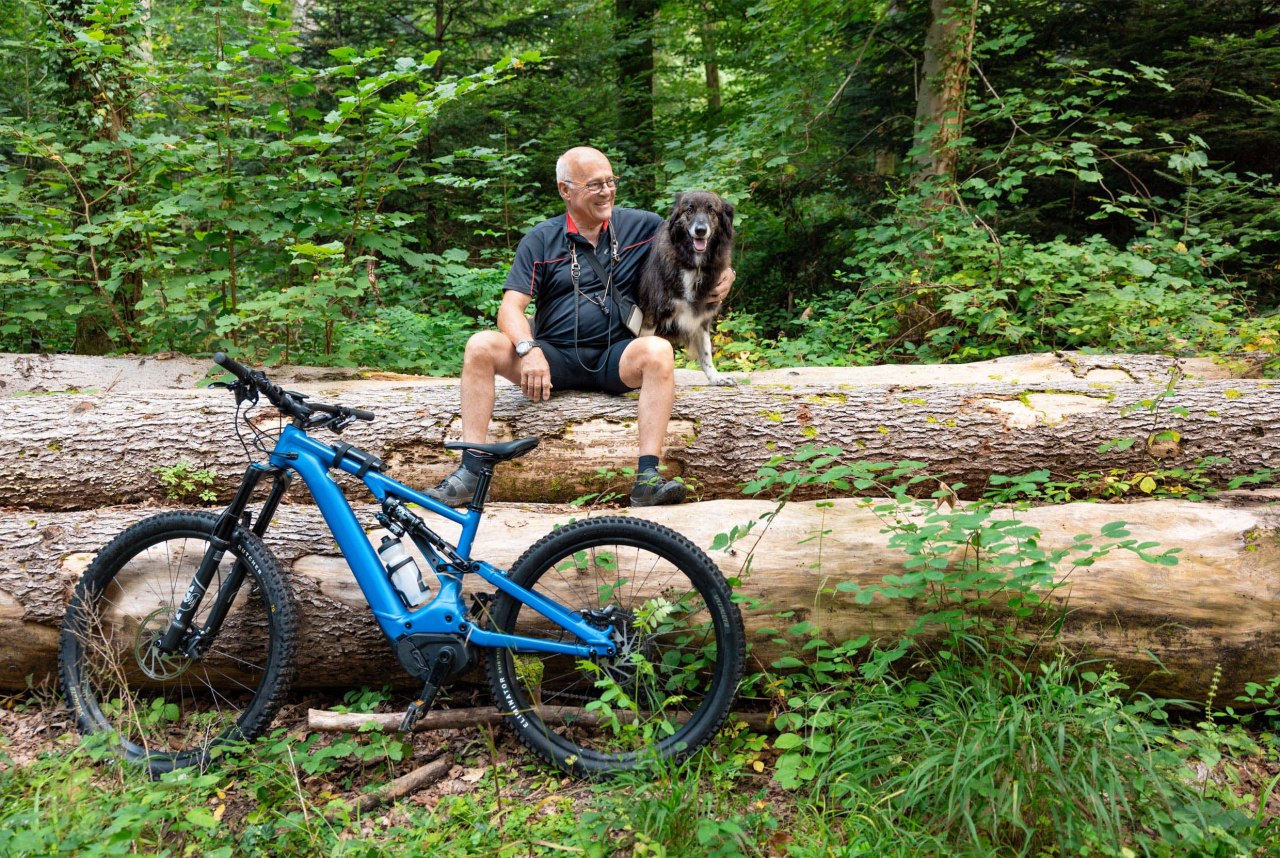
How did your nature-inspired business philosophy take shape?
To some extent, the nature/tree philosophy was born out of necessity. Why? When I make important decisions, I need assurance. But who can tell me if the decisions are right, not just now, but into the future? People are never impartial in their judgments. This is where nature has been a constant inspiration for me; observing its growth and change, coupled with my interest in philosophy. For me the tree symbolizes the company. Consider the crown, roots and trunk, and it becomes clear: for the company to be successful, I cannot neglect any part of it. I have to develop it as a whole. Other important principles include doing the same things in the same way, and eliminating internal competition.
How has this been reflected in the company?
This mindset lay behind the decision to settle on a single enterprise software system, and later on to consolidate IT into a single entity. We had a number of projects in sales to streamline internal structures and to strengthen our market and customer activities in a bid for higher sales without higher costs. Or take the development of unified product platforms: our current liquid analysis transmitters can connect with sensors for all parameters.
When you look back, which changes and developments were especially important for the Group? What gives you particular pride?
One important step for the Group was globalizing production, hence the establishment of factories in the US, India, China and Brazil. It made us more independent of exchange rate developments and enabled worldwide growth. Another milestone was our focus on life sciences, in tandem with the expansion of process analysis and our entry into the laboratory business with Analytik Jena. The pandemic highlighted the full significance of this move. Another successful strategy was opening up our Memosens technology to third parties. Everyone benefits: our customers, our competitors and ourselves.

“Healthy growth and secure jobs have been my constant drivers. I never had any doubts. And I never gave up.”
Klaus Endress
president of the Supervisory Board of the Endress+Hauser Group

If there is such a thing as your corporate legacy… Looking beyond your departure from the company, what do you see as important things to be preserved?
In nature, everything has a purpose. The purpose of our company is to help customers improve their products and manufacture them even more efficiently. Such total focus on the market and customers is always the right approach. We must follow this rigorously and uncompromisingly, because a winning formula is something you stick with. Just like in a family, cohesion and cultivation of common ground are important for the company. We must treat each other well; no one should feel that they are superior. This is why the top priority of Group management is to ensure that fundamental rules and procedures are upheld and observed: our vision and mission, the Spirit of Endress+Hauser, the Group strategy… In addition, every entity needs executives who network globally, both inside and outside the company. All of these things keep us on course, bring us success and help us in times of uncertainty.
Global free trade, stable national security, cheap energy – many of the good things that Endress+Hauser profited from in the past now seem to be taking a turn for the worse. Are we looking at more difficult years ahead?
Had you asked this question in 2009, in the middle of the global economic crisis, I would have been very reluctant to answer it. No one foresaw back then that the situation would completely turn around and that orders would once again skyrocket in 2010. Nearly every year since has brought us unforeseen events: the Arab Spring, the Fukushima nuclear disaster, the flooding in Thailand, the rise of populism, the Covid pandemic, the Ukraine conflict… All of these events substantially impacted our business, and yet we prevailed in every case. With few exceptions, we’ve experienced record years with more incoming orders, net sales, profit and staff. Looking back, it might appear to have been very easy, but of course a lot of hard work went into it. Now there’s talk of deglobalization. But trade volume is growing, our customers are investing and we’re expanding our locations. Of course there are changes afoot, such as increasing supply chain reliability. Key components should not come from just one source, so this is where value chains will develop. But that doesn’t mean the end of an open world. We will keep on seeing growth. With the right people and the right attitude, we can perform well and be successful in the future. Common ground and cohesion: the better we succeed here, the better the company will do. United and hand in hand, we are unbeatable!
An important anchor for the company is the family. What will it take for the family company to endure?
Compared to publicly listed companies, family companies develop either significantly better or considerably worse. There is just one thing they are not: average. The family, united or otherwise, is what makes the difference. Our Family Charter fosters unity and solidarity through solid institutions and clear principles. These are guidelines to live by. One of my major insights has been that companies and families alike need similar structures. Which is why we have the Family Council, a kind of executive board for the family, and the Family Charter, which sets out a vision and the values that count for us.
“I hesitate to offer unsolicited advice. But I’m always here if anyone is looking for my guidance.”
Klaus Endress
president of the Supervisory Board of the Endress+Hauser Group
What is the significance of no longer having a family member who is operationally active in the company?
This is not decisive to maintaining a bond with the company. Working in the company is a nice thing, of course! But for that, family members must have the same qualifications that we demand from external candidates. What’s important is that the family bears responsibility for the company. You don’t need to be in an operational role for that – but you do have to be active. There are many ways to be active without having operational responsibility, such as on the Supervisory Board, or as an ambassador for the family. This circle will expand in the coming years. And perhaps it will lead to renewed interest in assuming an operational role. There are always good people coming up in the family and in the company.
Although you are leaving the Supervisory Board, you will remain president of the Family Council and of course an Endress+Hauser shareholder. Where and how will we continue to see you in the company?
Although I will no longer serve as president of the Supervisory Board as of January, I shall still be around. My personality will continue to bear. And I will be visible through my role as president of the Family Council. I will keep my office here and stay abreast of developments within the company, because one of my responsibilities is to maintain the flow of information to the family. I’m nevertheless looking forward to being less driven, slowing down and having more time for my wife and children – in the hope of staying healthy for a long time to come.
A final word… What advice for the future would you like to share with us?
I hesitate to offer unsolicited advice. It can be perceived as intrusive, even if it’s valuable and shared with good intentions. But I’m always here if anyone is looking for my guidance.
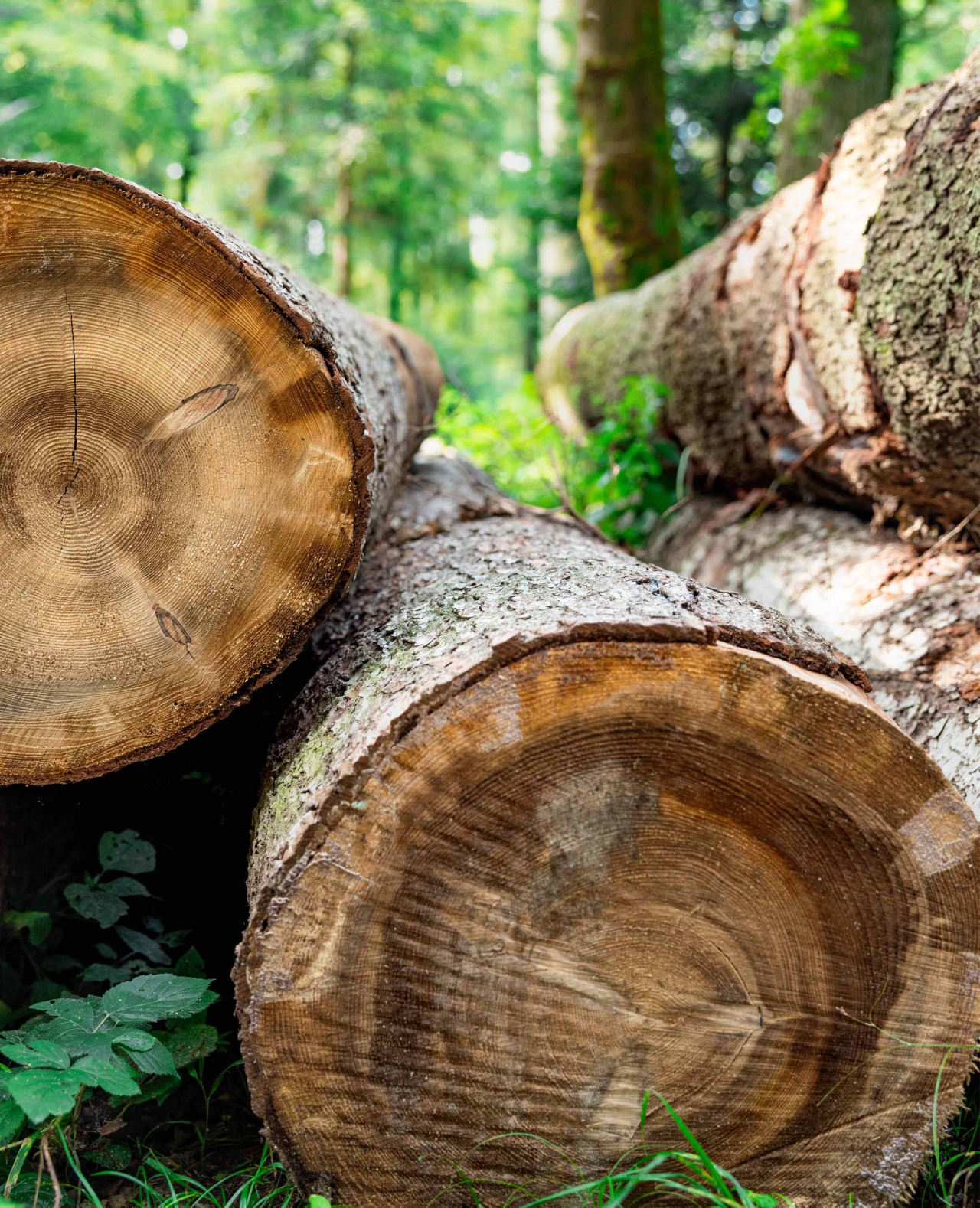
Nature as a role model
Klaus Endress draws strength and develops his thoughts from nature. “Nature has evolved and continuously adapted over three and a half billion years. I see its successful principles as inspiration for entrepreneurial activity.” He derives many of his insights from the tree as symbolic of the company. Nature also influences his people-centric approach.
“Customers, employees and shareholders are what make the company,” he says. “The better their interaction, the better our company will do. And best of all is interaction in a spirit of trust and loyalty.” The basis here is respect, quality and mutual benefit. Customers get first-class products, solutions and services. For employees it means secure, well-paid jobs. And the shareholders can be proud of the company while receiving an appropriate dividend.
Published 17.10.2023, last updated 27.10.2023.
Dive into the world of the process industry through new exciting stories every month with our «changes» newsletter!
